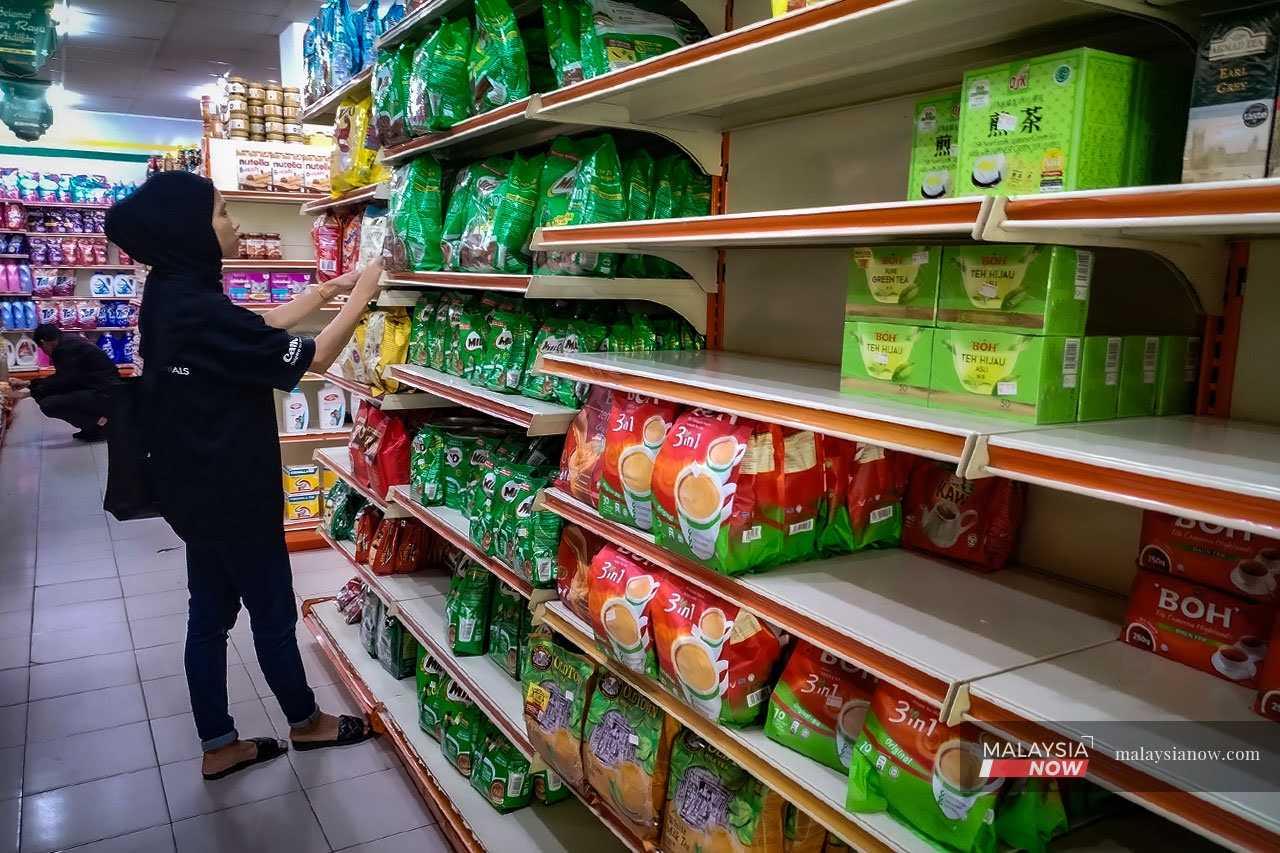From chocolate malt to burgers, consumers ditch global brands for local players as anti-Israel boycott continues
Business is booming as there are local alternatives for the products affected by the boycott.
Just In
From neighbourhood burger stalls to local chocolate malt brands competing with big household names, the campaign to boycott products and companies with ties or sympathies with Israel has led to booming business for many local brands.
In the past, it was impossible for local companies to break the huge influence that some international brands had on consumers in the country.
This includes a famous chocolate malt product that for decades was sold as part of a health diet, associated with athletics and even dominating the menu at hospitals.
Checks of large retail outlets show that these days, the product is barely moving from the shelves.
In contrast, the local equivalents, which are usually stacked next to it, are in high demand.
The same applies to coffee products, where many previously unknown coffee houses have expanded across the country in recent months in the hope that this time, consumers will switch to local brands.
Some of these brands have been promoted on social media platforms such as TikTok with the hashtag #boikotIsrael by those hoping to capitalise on pro-Palestinian sentiment.
In response, many major brands, including US fast food companies affected by the boycott campaign in the Islamic world, have felt compelled to show their sympathy for Palestinians by announcing humanitarian aid for Gaza.
Some, such as KFC, have reminded the public with banners outside their outlets that they are a locally owned company.
Others, like McDonald's, have used a variety of tactics to reverse the boycott trend, from engaging religious leaders to announcing zakat donations to legal action against those linking it to Israeli atrocities.
But such tactics have done almost nothing to change the misfortune of Western products and brands that have been marked for boycott.
This Ramadan, a group of university students in Cyberjaya found that the boycott campaign had changed their menu choices.
Nurul Izzani, 21, recalls how she and her friends used to buy their pre-dawn meal, or sahur, from a 24-hour fast food outlet that had even introduced a special menu to attract Muslims during the fasting month.
Nowadays, they favour a nearby burger joint that prepares Malaysian-style burgers.
"When we see pictures of starving children, people buried alive or bombed-out hospitals, we decide to make do," Nurul Izzani told MalaysiaNow while ordering a "Burger Special", a popular menu at Malaysian burger joints.
"Not only can you save money, this street burger is also delicious," she added.
The owner of the burger stall, Thaqif, said business had been good since November last year, just days after Israel launched a full-scale bombing campaign in the Gaza Strip following Hamas attacks on Oct 7.
He said that before the boycott, it was a challenge to sell 100 burgers, even though his stall opens until 1am.
"Nowadays, everything is sold out by 11pm," Thaqif said, adding that he brings enough ingredients for 150 burgers every night.
He pointed to an Egyptian man at a shawarma stall nearby.
"Over the last few months, we joke about who will close shop first," he said.
The anti-Israel boycott has left fast food outlets such as McDonald's and Starbucks almost deserted during peak hours, as Muslims with spending power heed a global call first initiated by the Boycott, Divestment, Sanctions (BDS) a global movement which organises the boycott of companies, brands and academic institutions that allegedly directly or indirectly fund and support the Israeli regime.
BDS said the brands were targeted "because these companies or their branches or franchises in Israel have openly supported apartheid Israel and/or provided generous in-kind donations to the Israeli military amid the current Israeli offensive against 2.3 million Palestinians in the occupied and besieged Gaza Strip".
The BDS movement, founded in the US in 2005, was inspired by the economic sanctions against South Africa in the 1980s, which led to the end of the white apartheid regime.
Subscribe to our newsletter
To be updated with all the latest news and analyses daily.
